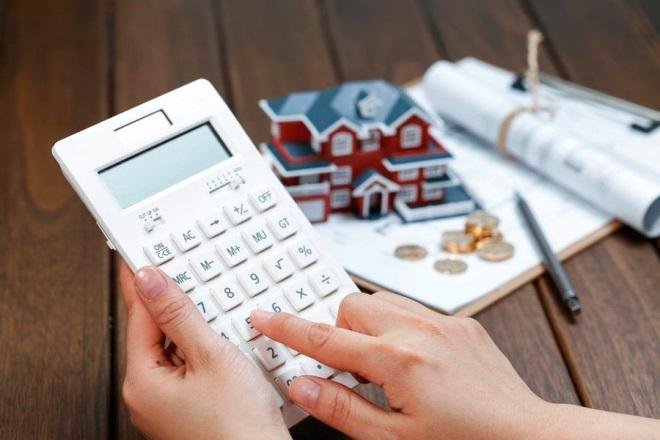Many questions come to your mind when you decide to sell your house or condo. The most important issue, of course, is how much it will cost you to sell your home?!
You may feel good about selling an old house and moving to a new one at first. But it is best to be aware of all the tips and expenses before taking any formal action. Here is a list of most important costs to consider.
Home Staging
You only have one chance to impress the buyer at the first glance. So as a seller, you need to spend some time and money on repairs and initial preparation. Because staged houses are sold at a higher price and in less time than un-staged houses.
Sometimes there are issues in the house that you may get used to and do not notice much, like the holes on the wall or the broken switch of your fireplace. But they certainly do not hide from the eyes of potential buyers.
If your furniture is dated or worn, you better remove them. The potential buyers don’t return to the same house twice, so try to make the best impression. Even if you have a pet in your house, you better consider some extra costs for boarding. It would be easier for buyers to visit your house without your pet following them everywhere.
Possible costs of preparing the house usually include painting (or hiring a landscaper to improve your house’s curb appeal), re-caulking the bathroom, cleaning, repairing, staging and even gardening.
Pre-Listing Home Inspection
Pre-listing home inspection is one of the things homeowners in Toronto are advised to do before they put their house up for sale. A pre-listing home inspection is like preventative measures for Sellers. Surely you do not want to suddenly face the sarcastic gesture of the buyer about the oil stain in the garage at the final negotiation table.
Pre-listing home inspection provides an inventory of repairing requirements for the seller, which could be critical to improve the home preparation process. The cost of Pre-listing home inspections in Toronto is $400-$600.
Status Certificate
If you are planning to sell your condo in Toronto, the buyer’s lawyer will most likely ask you for a Status Certificate of the condominium corporation. These documents outline the legal and financial health of the condo corporation.
In Toronto, it takes up to 10 business days and costs $100 for the condo corporation to prepare the status certificate. You can pre-order the status certificate before listing your condo for sale or only order it after confirming the sales agreement.
Real Estate Agent Commission
There are ever-increasing kinds of services and commission options for real estate agents in Toronto. The only way to avoid this expense is to sell your home yourself. But can you manage the project from beginning to end on your own?
This means you have to answer phone calls and emails, meet visitors, manage price bids, negotiate terms, and do staging and all the necessary legal paperwork. It is highly recommended to use professional help from one of the best Toronto real estate agents. They can make sure each step is done perfectly and your home will win the competitive price.
The agent you hire will spend most of the fee on marketing your property. The average real estate agent fee in Toronto is 5% of the sale price plus HST (Harmonized sales tax). This 5 % will split for 2.5% to your listing agent and 2.5% to the buyer’s agent.
Top listing agents usually have a lot of expenses for marketing, photos, advertising, etc. to get the best possible price for you. Each agent offers different service options included in their commission such as home staging ($3,000 – $7,000), professional photography and videos ($1,000), and marketing your house ($1,500 – $3,000). These are completely dependent on the agent’s experience, business model and previous results.
Legal Fees
The legal fees of selling your home are related to two factors: the law firm you choose and the price of your home. In Toronto, you generally should consider paying $1,500 to $2,000 for the legal fees. It varies slightly from firm to firm and depends on the property as well.
Both seller and buyer need a lawyer to deal with the closing process and conduct a title search. Basically, title search means to ensure that the seller has the legal right to sell the house and there is no lien on the property. Their presence is necessary to conclude the proceedings.
Mortgage Penalties
If you have a mortgage on your house, you should pay the mortgage lender a penalty fee if you sell the house during the mortgage period. Before listing your house for sale, talk to the lender to fully understand the details of the loan.
The amount of mortgage penalty depends on when you signed the original agreement, your mortgage balance and mortgage rate. Usually banks let you transfer the remaining mortgage balance to your new property, but other mortgage lenders have their own restrictions.
Capital Gains
In Canada, primary residence homes are free of the capital gains tax obligation (at the time of writing this article). Otherwise, this rule does not include investment properties. It means you’ll have to pay capital gains tax to the government on your investment properties.
Generally, if the value of your property increases and you sell the house with a price more than what you paid for it before (the adjusted cost base), then the government asks for capital gains tax which includes the cut of profit you’re making.
The more income you earn, the higher your marginal tax rate. So maybe the best time to try to sell your assets is when income is lower. Besides, you might be able to use your capital losses to offset the capital gains down to zero. For more information consult with your accountant.
Mostly for selling an investment property you have to pay 50% Capital Gains Tax on the net profits. If you have lived in your house as your main residence for a total of at least two of the five years prior to the sale, you might be exempt from the capital gains tax. Talk to your accountant for more info on exemptions.
Moving Expenses
The cost of moving is another expense that shouldn’t be ignored. It doesn’t matter if you’re going to hire movers or do it yourself.
The mover companies will measure the cost based on the amount of items to be moved, the size of your current house, its distance from the new house, etc. Even if you’re planning to do it yourself, you should consider the expenses for buying packing supplies, boxes, and a rental van.
Read More : Packing and Moving in Toronto
Land Transfer Tax
And the final but the good news is that you won’t have to budget for paying land transfer taxes! The Buyer is responsible for this one. The amount of land transfer tax depends on the value of your property.
Based on the rules declared by Ontario Ministry of Finance, when you want to buy a property or a beneficial interest in land, you should pay land transfer tax to the province as soon as the transaction closes.
Land transfer tax is generally calculated based on what you paid for the property. If you are a first‑time home buyer, you might be qualified for a refund of the whole or part of the land transfer tax.
![RLPS Logo-V [1Col RGB]-01 RLPS Logo-V [1Col RGB]-01](https://torealestateagent.com/wp-content/uploads/elementor/thumbs/RLPS-Logo-V-1Col-RGB-01-ohdkdw2fqtxwk9umk2c95d4sl5au0r49wgcs41fj7k.png)




